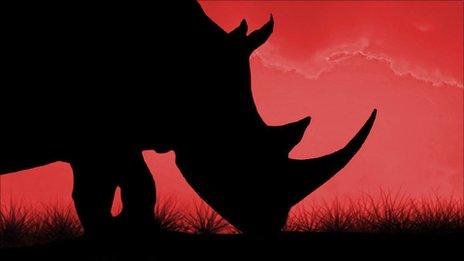Singapore's ‘Lion King' cub Simba born from dead dad Mufasa’s semen
- Published
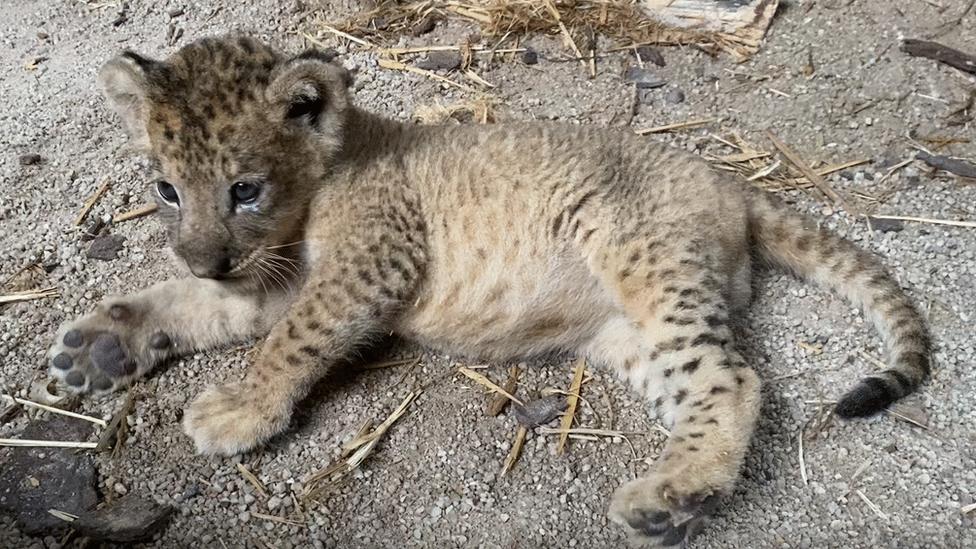
Simba the lion cub is now three months old
Singapore Zoo is celebrating the arrival of its first lion cub born through artificial insemination.
Unfortunately, baby Simba will never get to meet his father Mufasa, because the geriatric lion was not revived after the insemination procedure.
Simba is the late Mufasa's only son, as the older cat's aggression meant he never successfully mated.
Instead, the zoo decided to try to continue his bloodline through the rarely-used process.
According to a spokesman, his semen was collected by what the zoo described as "electro-ejaculation" for artificial insemination.
After that, frail Mufasa - who, at 20, had outlived his wild siblings by six to 10 years - had to be euthanised.
The animal was not only old, but also suffering from atrophy. The primary procedure was therefore "to euthanise Mufasa on humane grounds", the zoo told the BBC.
"Semen collection while Mufasa was under anaesthesia was a secondary procedure, albeit an important one, to ensure his bloodline continues after his passing."
Simba however, seems all set to carry on his father's bloodline: at three months, the little cub is apparently thriving.
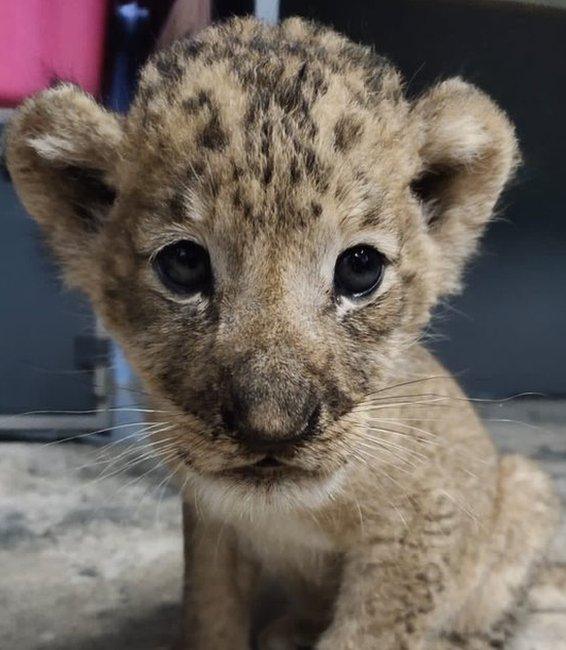
Simba's name is inspired by the famous Disney film, The Lion King

Simba - whose name, like his father's, is a nod to Disney classic The Lion King - was actually born last October, but the zoo waited until now to announce the news.
Some feeding issues due to his mother Kayla having inflamed glands meant that Simba was eventually bottle fed but maintained his close connection to the mother.
The Wildlife Healthcare and Research Centre in Singapore Zoo said he is "growing up to be a healthy and inquisitive little lion", with a particular fondness for a rattan ball he can tussle with.
"He has started to enjoy small amounts of raw meat together with his milk and spends most of his day playing with enrichment devices prepared by his keepers to nurture his development."
According to the zoo, Mufasa's genes - now passed on to Simba - will be of "high value in contributing to the genetic diversity and sustainability of African lion populations in zoological institutions".
The species is classified as vulnerable by the International Union for the Conservation of Nature (IUCN).

You may also be interested in:
Kristal and her students are fighting to eradicate ocean plastic
Related topics
- Published4 November 2020
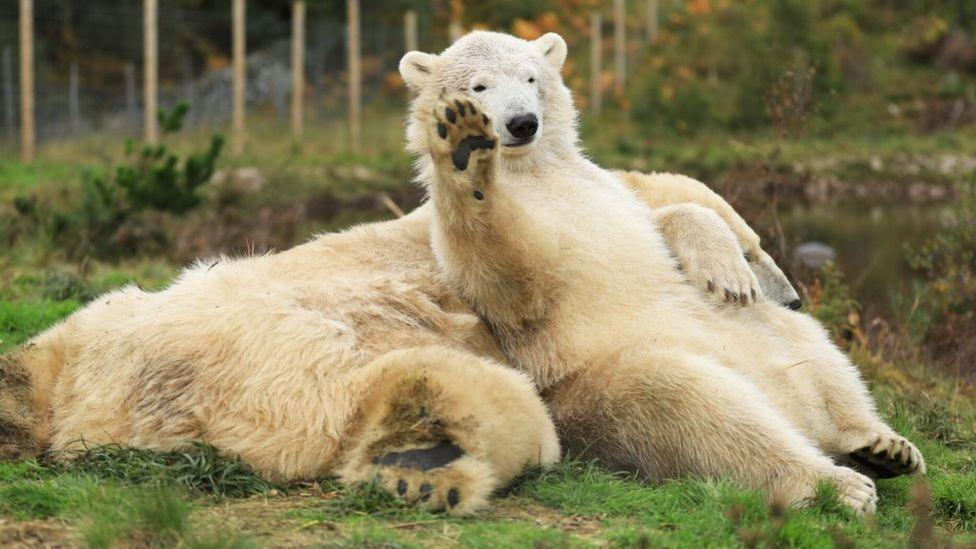
- Published25 August 2018
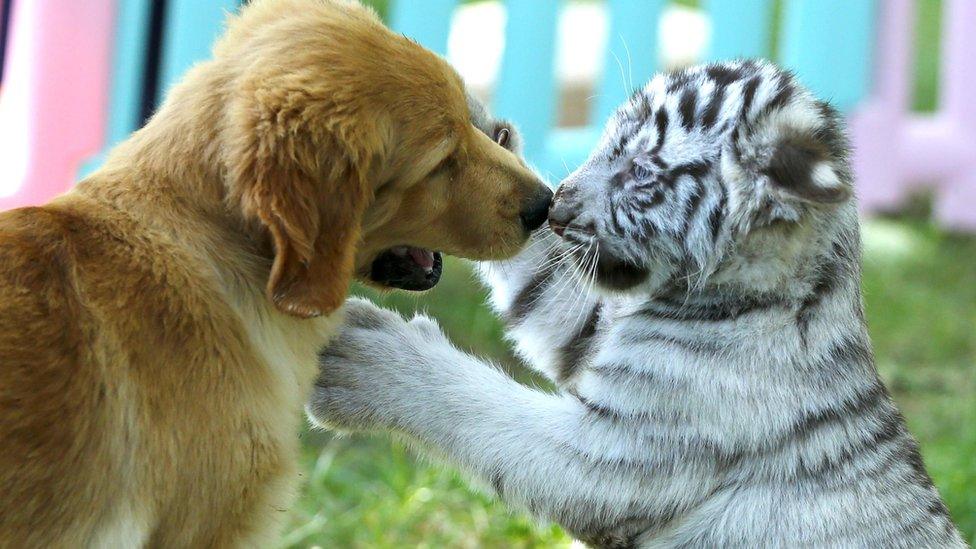
- Published15 September 2011
